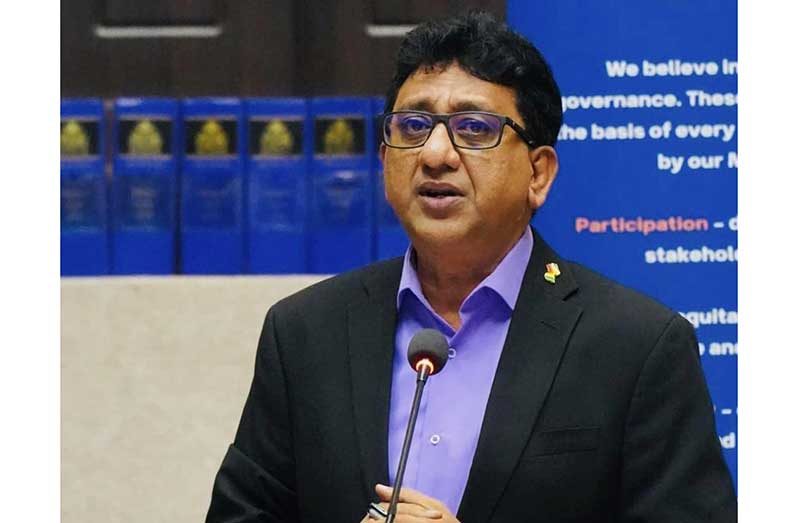THE Government of Guyana has taken a significant step toward establishing the country’s first law school, presenting a draft feasibility study to the Council of Legal Education (CLE) last week.
During his weekly programme ‘Issues in the News’, Attorney General and Minister of Legal Affairs, Anil Nandlall, SC, said the presentation took place during a CLE meeting held recently in Trinidad and Tobago, where the proposed law school was a key topic of discussion.
He explained that the law school project, which has been a priority for Guyana, will see the government providing the land and financing the construction of the institution, while the CLE will oversee its management, similar to how it runs the three other regional law schools.
Nandlall, who chairs the committee responsible for the initiative, presented the draft feasibility report to the CLE. The report was requested by the Council of Legal Education to determine the practicality and viability of establishing a law school in Guyana.
Speaking about the presentation, Nandlall shared that the CLE was highly impressed by the preliminary findings. “Council expressed its gratitude and congratulated Guyana for presenting an excellent preliminary report.”
The CLE has now appointed a high-level sub-committee, at Nandlall’s request, to collaborate with Guyana on advancing the project. This sub-committee will work closely with the government to refine the feasibility study and move the process toward implementation.
The sub-committee led by Nandlall includes CLE Chairperson Justice Liesel Weekes, SC; Trinidad and Tobago’s Attorney General Reginal Armour; Chief Justice of Belize, Louise Blenman; Principal of The Bahamas-based Eugene Dupuch Law School, Tonya Galanis and former CLE Chairperson and current member Jacqueline Samuels-Brown, KC and Jamaican jurist Dr Lloyd Barnett.
The establishment of a law school in Guyana has long been a topic of discussion, as it aims to address the growing demand for legal education within Guyana as well as the region.
Guyanese students who wish to finish their legal education currently have to enrol in one of the three regional law schools in the Caribbean. The CLE was established in 1971 to train those who wanted to practise law in the region, instead of in Britain.
It operates three law schools in the region: the Norman Manley Law School in Jamaica, the Hugh Wooding Law School in Trinidad and Tobago – both established in 1973 – and the Eugene Dupuch Law School in The Bahamas, which was established in 1998. Due to zoning, most Guyanese students are accommodated at the law school in Trinidad and Tobago.
Guyanese bear heavy financial obligations each year, such as the GY$7 million in tuition fees and mandatory fees for the two-year Legal Education Certificate (LEC)– the final academic qualification to practise law in the Anglophone Caribbean.
This has discouraged many people from pursuing a profession in law, especially when combined with the high expense of living in Trinidad and Tobago. In response to this, the government now offers limited, fully funded scholarships to the Hugh Wooding Law School.
These scholarships are open to new and continuing students.
The introduction of a law school in Guyana is expected to significantly ease this burden, providing more opportunities for local students to pursue legal education without having to relocate.
The law school is expected to attract students from across the region and farther afield. Once approved, the law school would be constructed at the University of Guyana’s Turkeyen campus.


.jpg)











